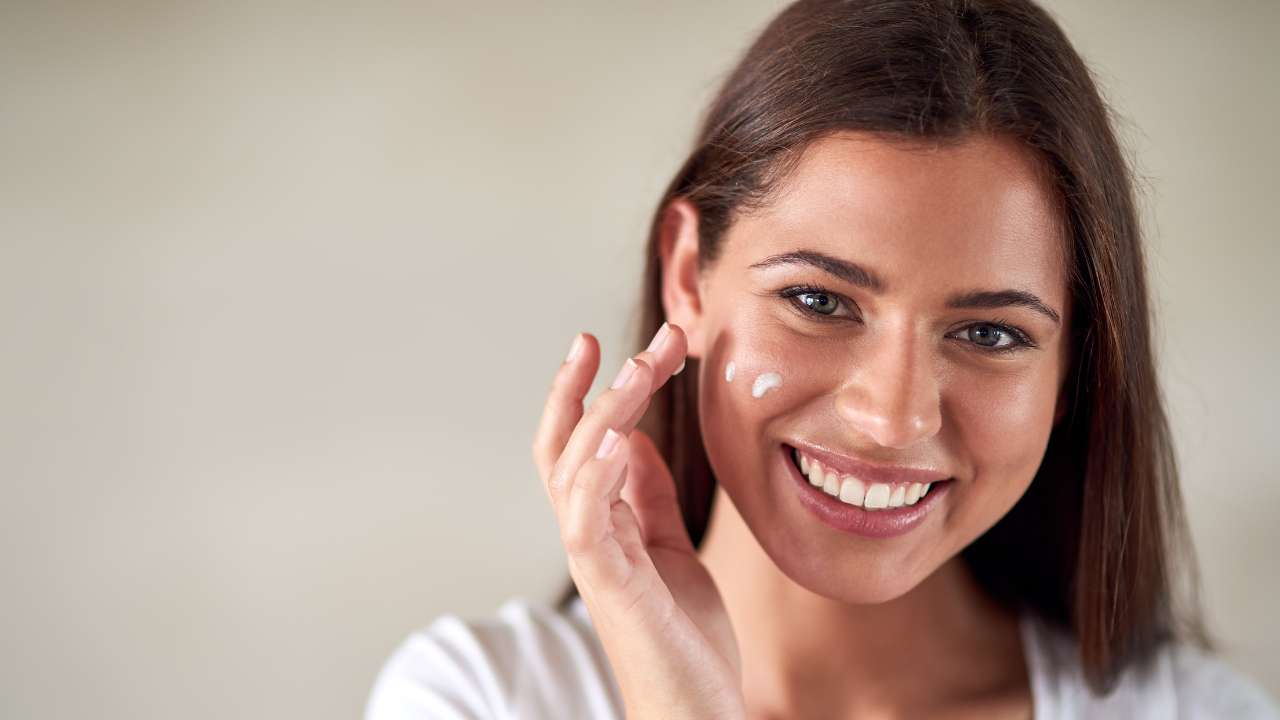What is Skincare?In today’s fast-paced world, skincare has become an essential part of daily self-care routines for many people. Whether you’re looking to maintain healthy skin, fight aging, or manage skin issues, understanding the basics of skincare can lead you to better skin health and a more confident you. But what exactly is skincare?
Skincare refers to the range of practices, including cleansing, moisturizing, and protecting the skin, aimed at maintaining or improving its appearance and overall health. Skincare practices vary based on skin type, climate, and personal preferences, and they include various products such as cleansers, serums, masks, and sunscreens. But before diving into product recommendations and techniques, it’s important to first understand the fundamentals of skincare.
The Importance of Skincare
Skincare is not just about beauty; it’s about health. Our skin is the body’s largest organ, and it performs several important functions. These include protecting our body from harmful UV rays, preventing dehydration, and regulating body temperature. Good skincare helps to maintain the skin’s integrity and ensures its ability to perform these functions efficiently.
Moreover, healthy skin boosts confidence, reduces the likelihood of skin problems like acne, wrinkles, and pigmentation, and contributes to overall well-being.
The Components of a Skincare Routine
A comprehensive skincare routine generally includes a few key steps: cleansing, toning, moisturizing, and applying sunscreen. Let’s break down each component and its purpose:
Cleansing
Cleansing is the first step in any skincare routine. The purpose of cleansing is to remove dirt, oil, and impurities from the skin. This helps unclog pores, prevent breakouts, and prepare the skin for other skincare treatments. There are various types of cleansers available, including gel, foam, cream, and micellar water. Choosing the right cleanser depends on your skin type, whether you have oily, dry, or sensitive skin.
Toning
After cleansing, toning helps to balance the skin’s pH levels. Toners can provide additional hydration, soothe irritated skin, and refine pores. Some toners also contain active ingredients such as salicylic acid or glycolic acid, which can help in exfoliating the skin and promoting cell turnover.
Moisturizing
Moisturizing is essential for all skin types, including oily skin. A good moisturizer helps retain the skin’s natural moisture, preventing it from becoming dry or irritated. It also creates a barrier to protect the skin from environmental pollutants. There are various types of moisturizers, including creams, lotions, and gels, depending on your skin’s needs.
Sun Protection
Sunscreen is arguably the most important step in any skincare routine. Sun exposure is the leading cause of premature skin aging and skin cancers. Using a broad-spectrum sunscreen with SPF 30 or higher can significantly protect your skin from harmful UV rays. Reapply sunscreen every two hours, especially when you are outdoors.
Different Skin Types and Their Needs
One of the most crucial aspects of skincare is understanding your skin type. Everyone’s skin is different, and using products that suit your skin type is vital for achieving the best results. The main skin types are:
- Oily Skin: Characterized by an excess of sebum (oil) production. People with oily skin tend to have shiny skin and are more prone to acne and clogged pores.
- Dry Skin: People with dry skin experience a lack of moisture and may notice flakiness, tightness, or irritation.
- Combination Skin: This type exhibits characteristics of both oily and dry skin. The T-zone (forehead, nose, and chin) tends to be oilier, while the cheeks may be dry.
- Sensitive Skin: Sensitive skin can react easily to products and environmental factors. It may become red, itchy, or irritated.
- Normal Skin: Normal skin is well-balanced, neither too oily nor too dry, and generally has fewer issues.
Skincare Ingredients to Look For
When selecting skincare products, it’s essential to be mindful of the ingredients they contain. Some ingredients are known to benefit specific skin concerns. Here are a few essential skincare ingredients and what they do:
- Hyaluronic Acid: Known for its ability to retain moisture, this ingredient is excellent for hydration.
- Vitamin C: A powerful antioxidant that helps brighten the skin and even out skin tone.
- Retinol: A form of Vitamin A that promotes cell turnover and reduces signs of aging such as wrinkles and fine lines.
- Niacinamide: Known for reducing inflammation, niacinamide helps with acne, redness, and hyperpigmentation.
- Salicylic Acid: This beta-hydroxy acid (BHA) is effective for exfoliating and deep-cleansing pores, making it ideal for acne-prone skin.
Advanced Skincare: Treatments and Procedures
While basic skincare routines are enough for most people, there are also advanced treatments and procedures available for those looking to tackle more specific skin issues or achieve deeper skincare benefits. Some of these treatments include:
- Chemical Peels: These are designed to exfoliate the skin and promote cell regeneration by using acids that remove the outer layers of skin.
- Microneedling: A procedure that involves tiny needles to stimulate collagen production and improve skin texture.
- Laser Treatments: Lasers can target pigmentation, wrinkles, and other skin concerns by stimulating collagen and promoting skin regeneration.
How to Build a Skincare Routine
Creating an effective skincare routine requires consistency, knowledge, and sometimes a bit of trial and error. Here’s how you can build your skincare routine:
- Know Your Skin Type: This will help you choose the right products that address your unique needs.
- Start Simple: Begin with the basic steps—cleansing, moisturizing, and sunscreen—before adding more complex treatments.
- Introduce Products Slowly: Avoid overwhelming your skin by introducing new products one at a time, and give each one time to show its effects.
- Use Products as Directed: Follow the instructions on product labels, and don’t overuse active ingredients like retinol or acids.
- Be Patient: Skincare results take time, so don’t expect instant changes.
Common Skincare Myths
With so much information available, it’s easy to fall prey to skincare myths. Here are a few common myths to dispel:
- Myth #1: You don’t need sunscreen on cloudy days.
- Even on cloudy days, up to 80% of UV rays can still reach your skin. Always wear sunscreen.
- Myth #2: Oily skin doesn’t need moisturizer.
- Oily skin still needs hydration. Skipping moisturizer can lead to imbalanced skin and increased oil production.
- Myth #3: Natural products are always better.
- While natural ingredients can be beneficial, some synthetic ingredients are also highly effective and safe for the skin.
Conclusion
In conclusion, skincare is a vital part of maintaining healthy skin and overall well-being. By understanding the basics, knowing your skin type, and using the right products, you can develop a routine that works for your unique needs. Remember that consistency is key, and results will appear over time.
FAQs (Frequently Asked Questions)
Q1: How often should I cleanse my face?
A: It’s recommended to cleanse your face twice daily—once in the morning and once before bedtime to remove impurities.
Q2: Can I use sunscreen indoors?
A: Yes, you should wear sunscreen indoors if you are exposed to natural light or blue light from screens.
Q3: How do I know if a product is right for my skin?
A: Conduct a patch test before using any new product to ensure it doesn’t irritate or cause an allergic reaction.
Q4: Can skincare prevent aging?
A: While skincare can’t completely stop aging, it can significantly reduce the signs of premature aging, such as wrinkles and fine lines.




